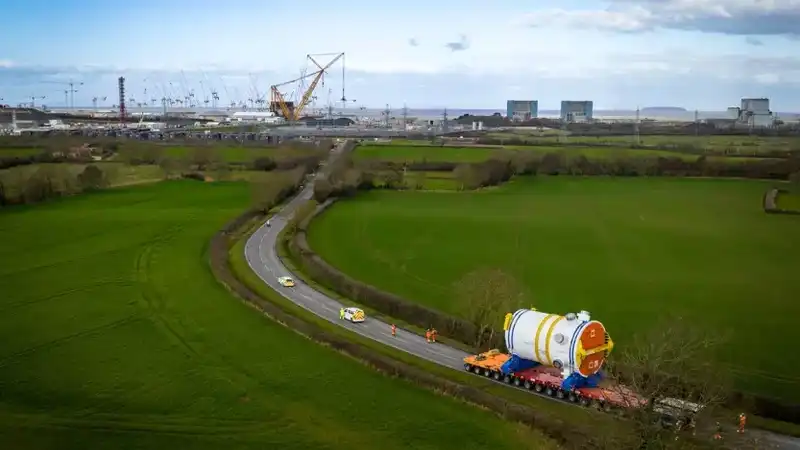This article was first published in the Daily Express as: “It is very nearly too late to avoid lights going out across Britain”.
It is surely a prime duty of Government to ensure that its citizens and industries have access to plentiful, affordable energy, energy which is safe, secure and reliable and which does not contribute to our carbon emissions.
It is a duty which successive Governments have failed to discharge. The current energy crisis means that such failure can no longer be tolerated.
Of all the options, only electricity generated from nuclear energy ticks all the boxes against the required criteria. It is safe, clean, secure and reliable; managed properly it is one of the cheapest forms of electricity available to us. It emits almost zero carbon.
Our old fleet of Magnox and AGR power stations have demonstrated these benefits but these workhorses have now reached the end of their lives and need to be replaced.
Successive Governments have recognised all this but have failed to do anything about it, with the single exception of allowing Hinkley Point C which is French owned and operated. Soon, even with that plant on line, the nuclear component of our electricity will be down to 10%.
Government progress has recently been limited to a series of “consultations” and token “development funds” for which industry has had to make expensive and time-consuming competitive bids. A series of minor initiatives does not amount to a policy. Flurries of activity should never be allowed to mask failure to take meaningful action.
There have been endless, repetitive debates on alternative ways to manage nuclear waste. No industry knows more about how to manage its waste than does the nuclear industry. Every waste stream is captured, solidified, encapsulated and placed in a secure, managed store where it can safely decay.
Now it is time to get on with a major new building programme of both large power stations, each with equivalent outputs to Hinkley Point C, and a fleet of Small Modular Reactors (SMRs) which can bring nuclear electricity into the heart of local demand.

It is very nearly too late to avoid catastrophic blackouts and lasting, crippling energy prices. But, hopefully, decisive action can save the day. Three new large nuclear power stations could halve the CO2 emissions from our current gas-fired capacity and the addition of a fleet of, say, twenty SMRs would virtually eliminate CO2 emissions from our electricity generation. There is no other credible way of achieving this. Moreover, the nuclear option would mean our electricity supplies would no longer be vulnerable to international politics and the vagaries of the UK weather. We shall no longer need to appease our foreign energy suppliers and succumb to their blackmail on prices nor risk blackouts when the wind doesn’t blow.
Government should give the necessary authority and appropriate funding to its new Great British Nuclear Authority and instruct it to get on with it. It is Government’s responsibility to ensure the programme is funded, either directly or by underwriting the investment, at least until the units are up and running, when, with the main project and political risks behind them, they can be sold to the private sector. With 60 or even 80 years of continuous, secure operation ahead of them, what an investment opportunity for pension funds!
It is time to really embrace the nuclear option!
Neville ChamberlainChairman
Supporters Of Nuclear Energy
